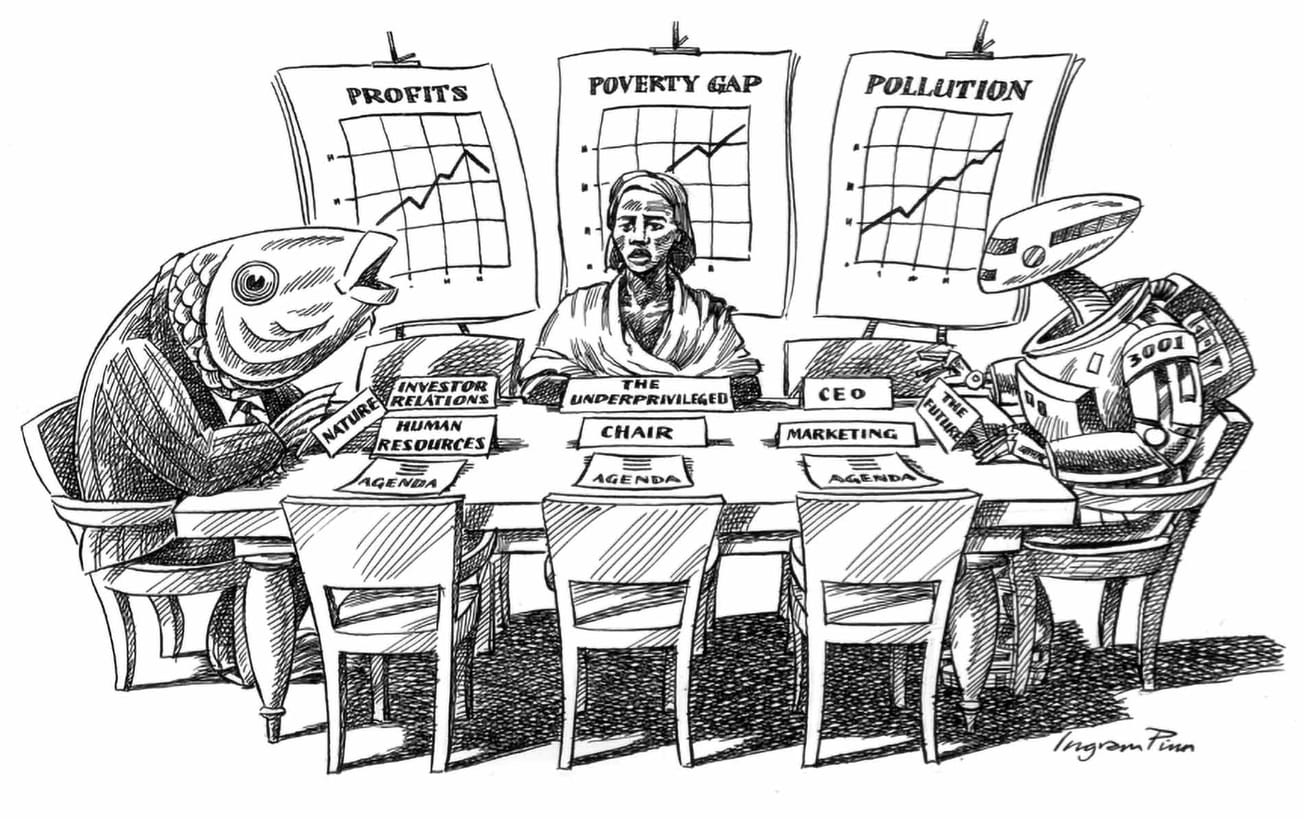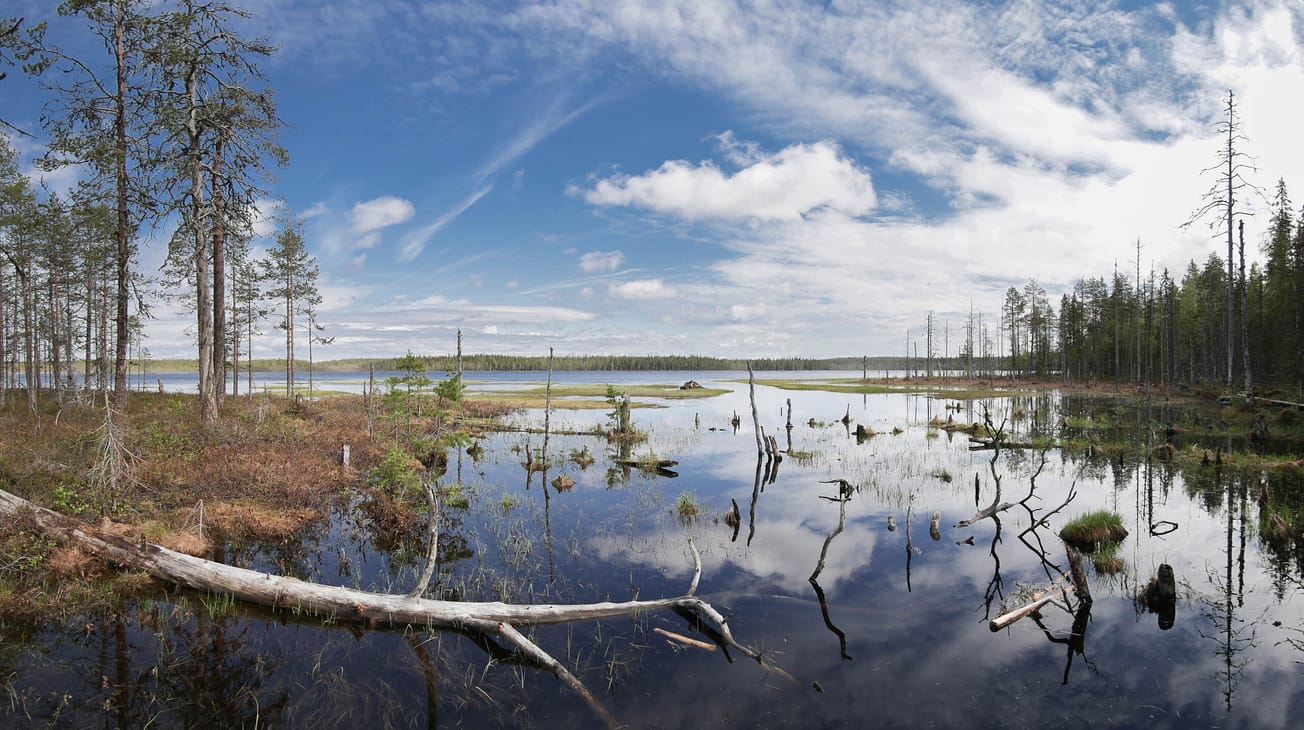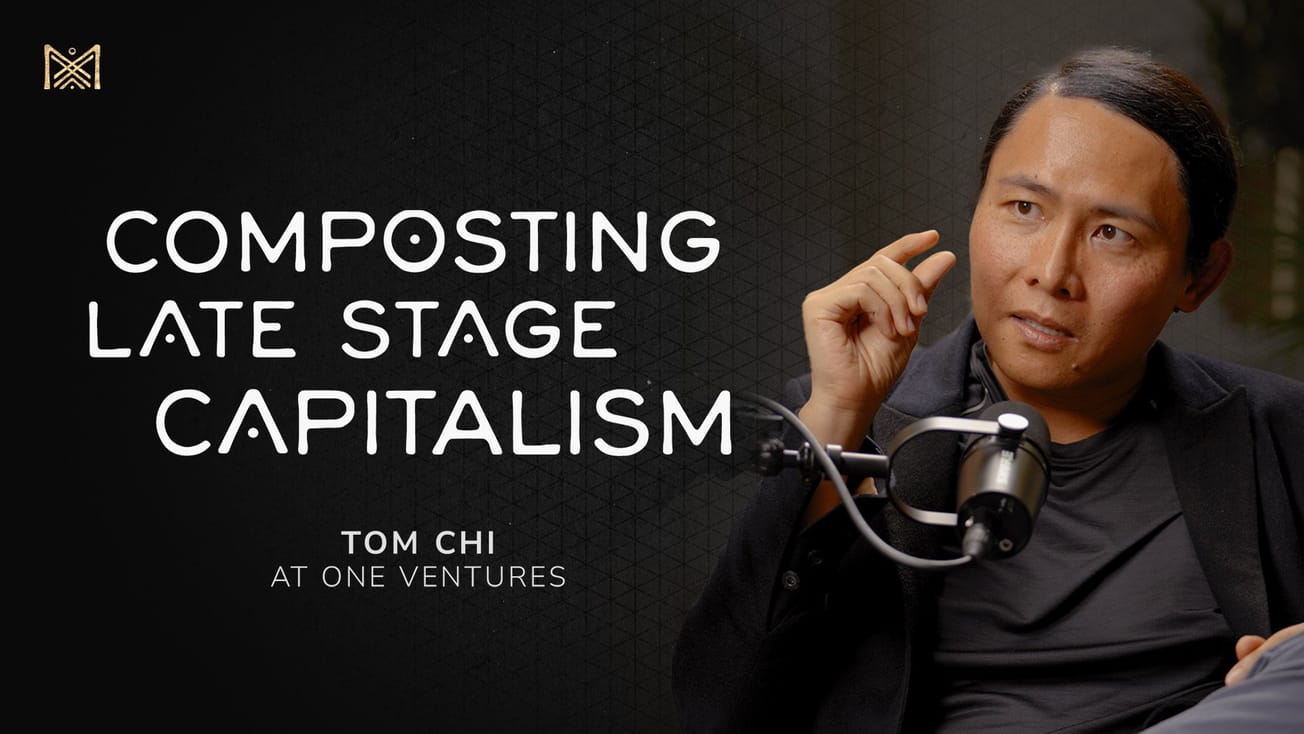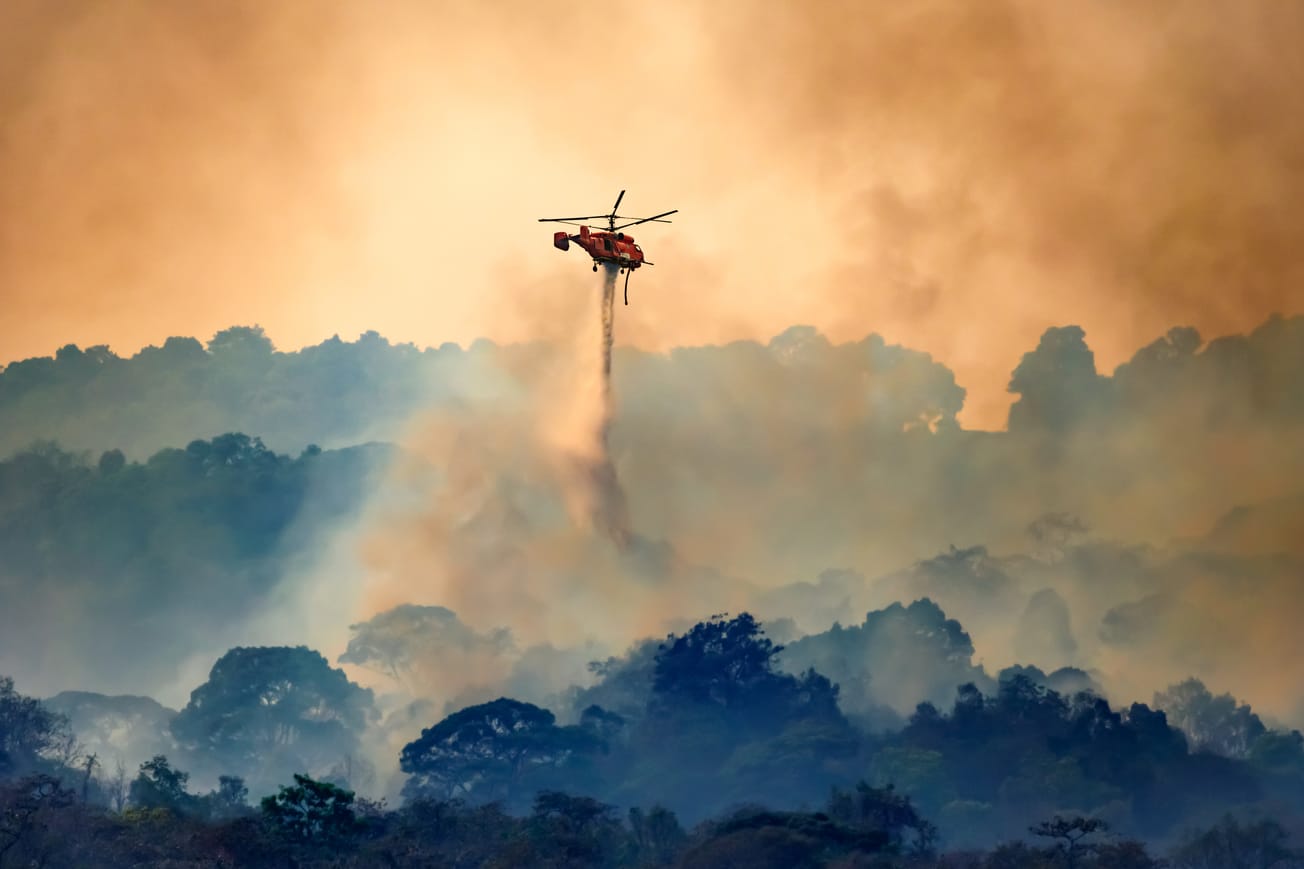Last week at South Summit in Brazil’s Porto Alegre nature was on the agenda before thousands of start-ups and early-stage investors.
Why, you ask? Reimagining businesses' relationship with the natural world is a huge opportunity. Nowhere is that more true than in Brazil, home to the Amazon, the world’s largest tropical rainforest and one of the most biodiverse regions on the planet, and 2025 hosts of the UNFCCC COP-30.
It was fitting that on my first night in this South American port city, I met John Elkington, an innovative thinker and sustainability trailblazer, in one of the city’s lush urban parks. In anticipation of our fireside chat, we caught up while watching for the local bats to emerge at dusk.

This appropriate commencement in nature began several whirlwind days at South Summit where I had the pleasure of representing the Nature Tech Collective. The absolute highlight was a fireside chat with the wonderful Mr. Elkington. (See Surfing The Future Substack for his insights on the gathering!)
We made the most of our time on the Arena stage (video link here), discussing a range of topics in short order - the importance of businesses driving a nature-positive agenda, the role of nature technology in this transition, the need for the climate conversation to evolve and include biodiversity, the wonders of biomimicry, and more!
Here’s a deeper dive into a few of the highlights. . .
The importance of businesses driving a nature-positive agenda.
The nature bank is empty, and businesses are 100% reliant on nature. The environment offers crucial infrastructure for business, so why don’t we have better models for reinvesting?
To frame this for investors and start-ups, over half the world’s total GDP is moderately or highly dependent on nature and its services, with an estimated $58 trillion exposed to nature-related risk.
To make these numbers tangible, consider that 75% of global food crops rely on pollinators, 70% of cancer drugs are inspired by or based on nature, and 72% of companies are highly dependent on at least one ecosystem service.
Healthy forests play a crucial role in regulating temperatures, and ensuring fresh water and clean air. Flourishing coastal and marine ecosystems protect against storms and sequester carbon. The list goes on, from wetlands and desert savannahs to tundra forests, kelp forests, and coral reefs.
Simply put, nature resilience is business resilience.
Of course, this means practical considerations like reliance on natural resources - the food, agriculture, and fishery industries are especially vulnerable. Extreme weather events exacerbate business risk due to operation and supply chain impacts from droughts, floods, fires, and scorching heat.
But what’s more inspiring is the opportunity to be part of an evolution to advance from an economy based on extraction to one founded on regeneration and stewardship. This will require major shifts in systems thinking, but that pivot would serve many more stakeholders than the existing paradigms we live and work within.
In the instance of Brazil, defining a high-integrity bio-economy holds enormous potential. Calling upon the principles of biomimicry to learn from nature, for example (more below.) Developing practices to renew the natural resources upon which a company depends. In essence, evolving from a mentality of merely sustaining to becoming positive - nature positive.
Perhaps some of the South Summit start-ups and investors will lead the way in defining a high-integrity bio-economy!
The role of nature technology
Firstly, let’s define the reference. ‘Nature tech’ is a broad set of technologies that can accelerate and scale the implementation of high-quality nature-based solutions (NbS). NbS are actions that aim to protect, restore and sustainably manage natural and semi-natural ecosystems.
With that clarity, nature tech has surged in parallel with the increasing awareness of the critical role nature plays in addressing the climate crisis. To advance biodiversity protection and restoration, high-integrity data is needed to give stakeholders confidence in baselines and improvements through monitoring, reporting, and valuation (MRV.)
Manually monitoring ecosystems can be time-consuming, expensive, and impractical, which is where technology comes in. Using drones and satellite monitoring, blockchain for transparency in carbon transactions, bioacoustics to detect discrete sounds in nature and remote robotics are some examples emerging in this space.
As we see through the Nature Tech Collective members (and others), the innovation exists. What’s needed to scale is the acceleration of creative partnerships, financing to close the existing gap, and broad adoption by the public and private sectors.
We know that indigenous guardians protect 80% of the world’s remaining biodiversity. With this understanding, when deployed with respect for nature, alongside the inclusion and compensation of Indigenous Peoples (IPs) and Local Communities (LCs), nature tech is an important piece to scaling NbS.
A call to action for South Summit start-ups to consider inclusivity and social equity as a foundation for future business models.
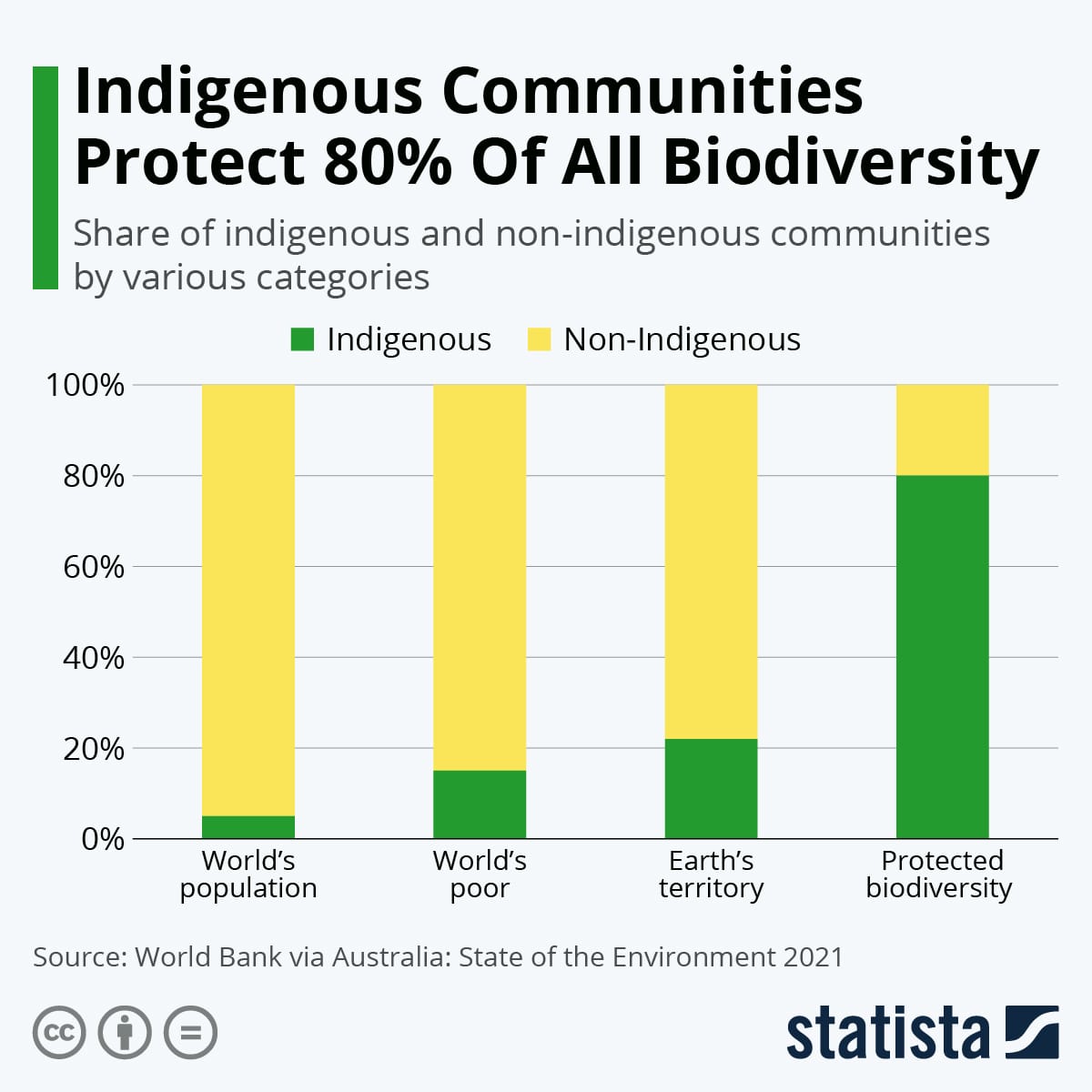
The wonders of biomimicry
Our conversation would not have been complete without including biomimicry and a provocation to consider how learning from nature is a simple but profound reframing for society.
In pondering the long-term need for businesses to shift from an extractive model to one that’s regenerative and stewardship-based, it’s appropriate to reflect on the fact that life has been on Earth for 3.8 billion years. To that end, humans can gain tremendous insights from the accumulated learnings required for plant and animal life to evolve and survive over that extended period!
To create conditions conducive to life, nature is constantly problem-solving, recycling, innovating, and adapting. To quote Montana-based Janine Benyus, who coined the term and co-founded Biomimicry 3.8, “We are surrounded by geniuses.” (See the Nature IS episode on biomimicry!)
Now let’s adopt the humility to allow nature to teach us, drawing upon 3.8 billion years of refined collaboration and resilience as we design the future we want.
Obrigada to South Summit for hosting us on the beautiful shores of Lake Guaíba, and putting nature on the agenda! Let’s keep the conversation going.
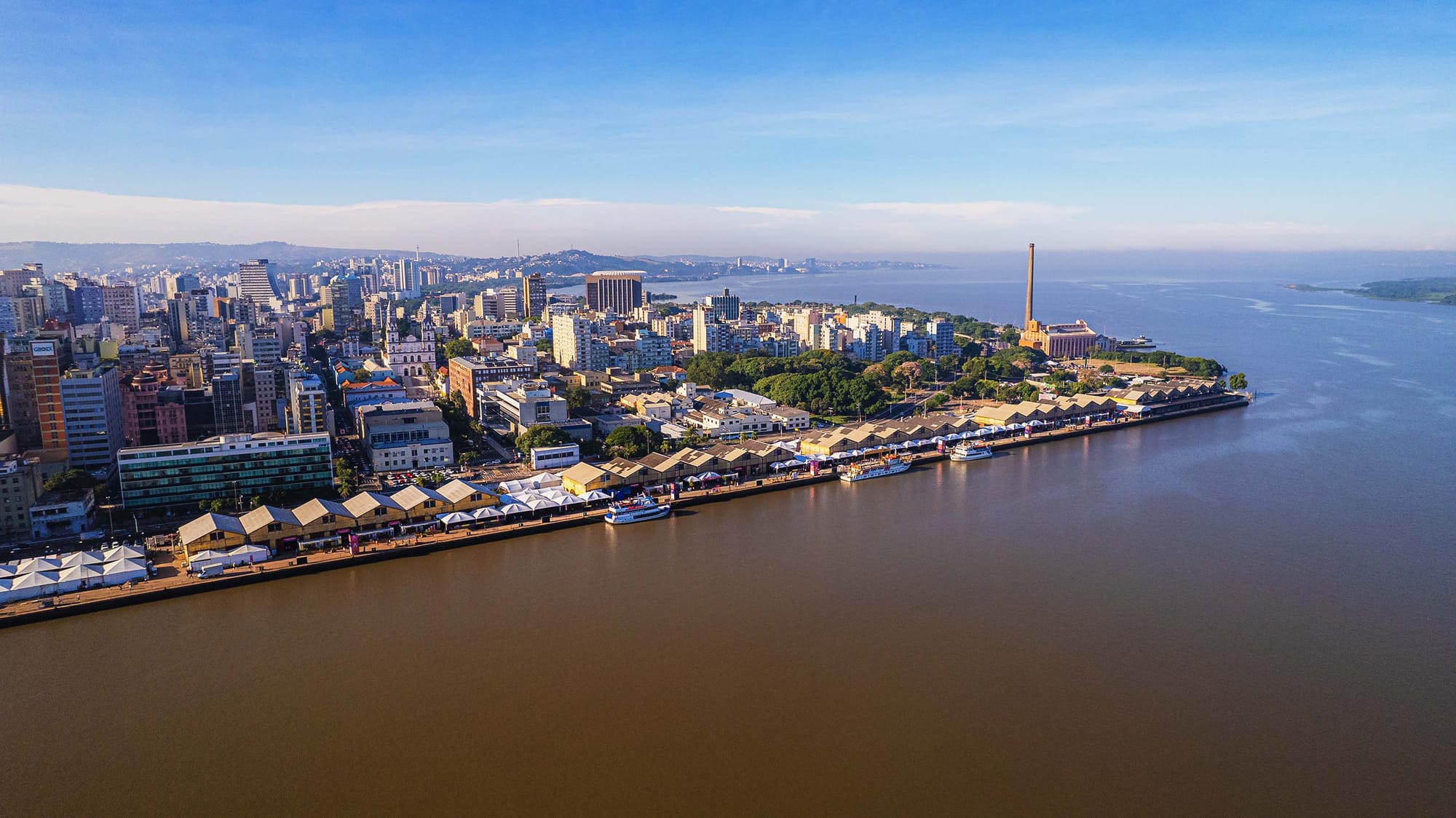
*Credit and thanks to Wildya for the open-source biodiversity fact sheets!




